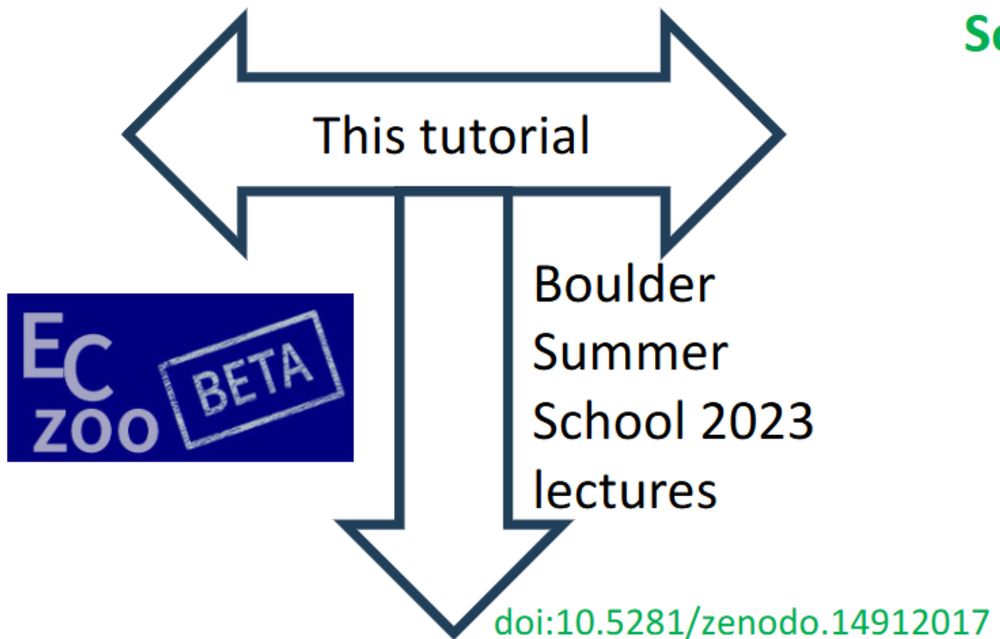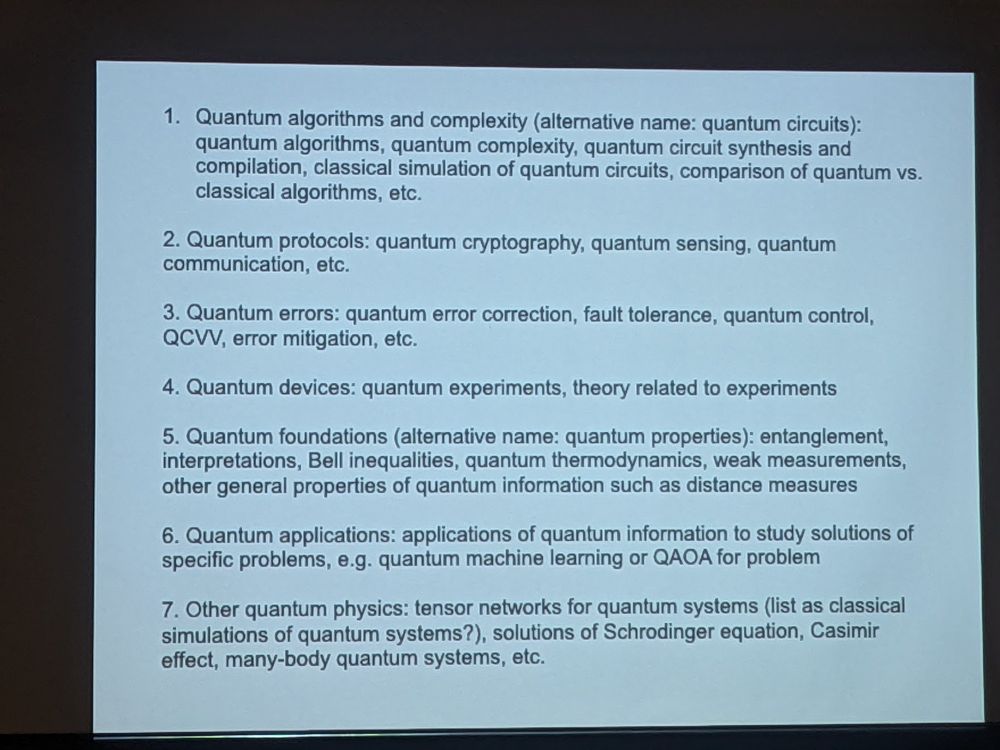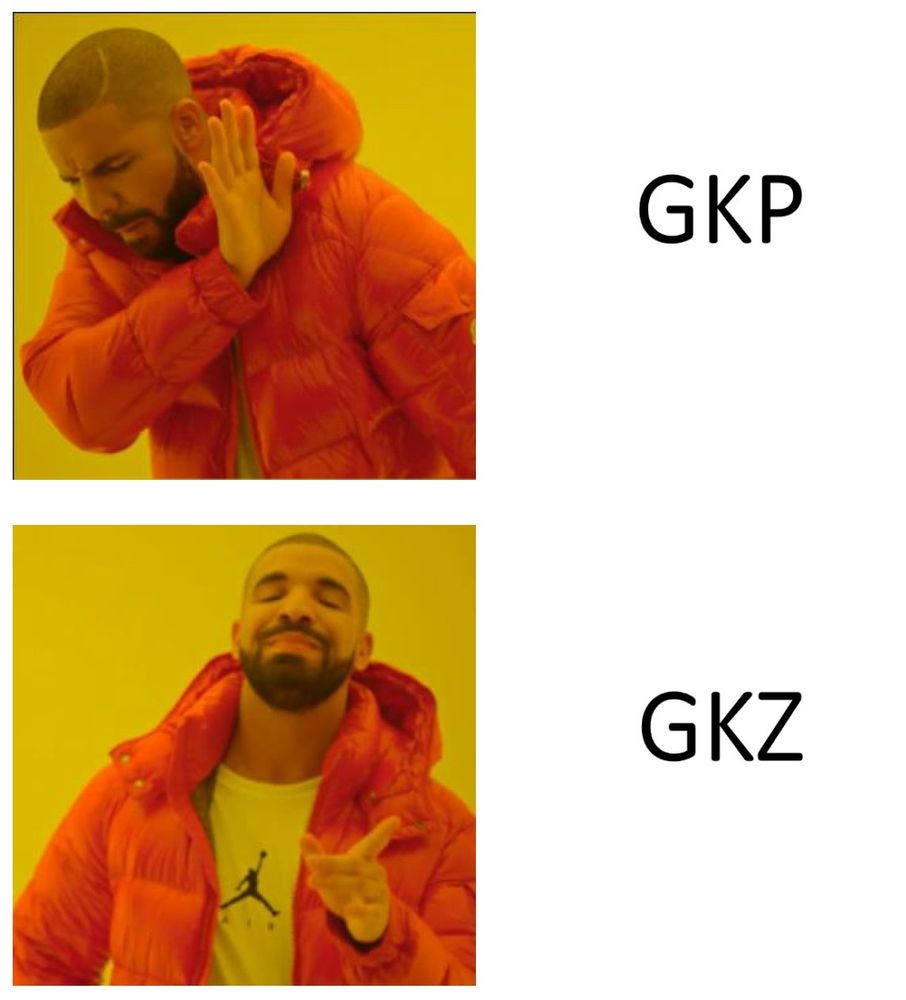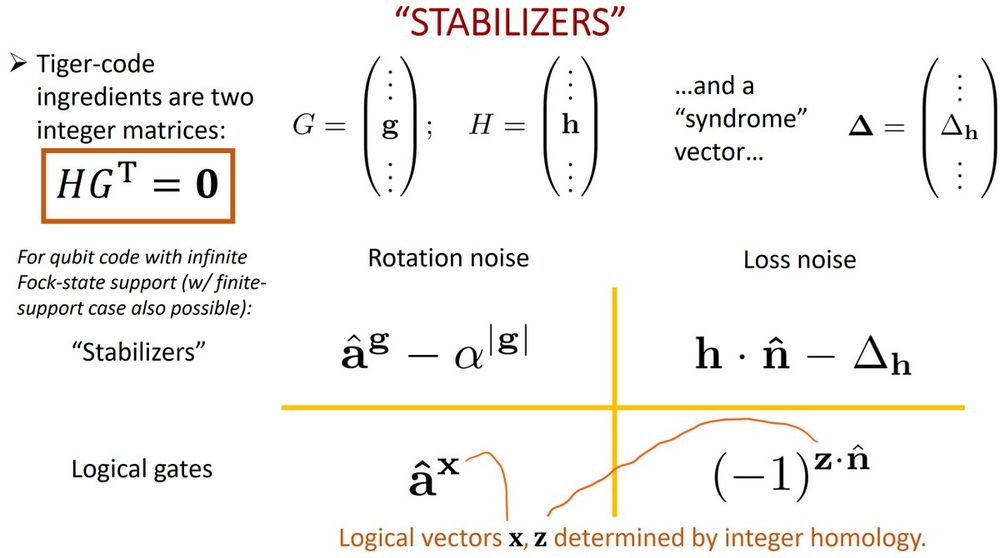
Victor V. Albert
@vva.bsky.social
Theoretical physicist @NIST, QuICS Fellow, Zookeeper @eczoo.bsky.social. Views my own.
David Gross (Cologne) talks about SDP based quantum algorithms. Take home: hidden constants matter. Even if there is an asymptotic speedup in your favorite use case, it may still not be in the parameter regime that is relevant to the problem size you're interested in.

September 10, 2025 at 4:37 PM
David Gross (Cologne) talks about SDP based quantum algorithms. Take home: hidden constants matter. Even if there is an asymptotic speedup in your favorite use case, it may still not be in the parameter regime that is relevant to the problem size you're interested in.
@ox.ac.uk debate by Simon Benjamin & Bálint Koczor, host @mariaviolaris.bsky.social. Motion: "quantum computers will have a greater impact on our lives than conventional ones." Terry Rudolph, Nathan Wiebe, Elham Kashefi vs @jenseisert.bsky.social, @graemesmith.bsky.social, me. Motion defeated 94-72.

August 29, 2025 at 9:18 AM
@ox.ac.uk debate by Simon Benjamin & Bálint Koczor, host @mariaviolaris.bsky.social. Motion: "quantum computers will have a greater impact on our lives than conventional ones." Terry Rudolph, Nathan Wiebe, Elham Kashefi vs @jenseisert.bsky.social, @graemesmith.bsky.social, me. Motion defeated 94-72.
The integer eigenvalues of angular momentum in a 2D space with periodic boundary conditions are scaled by the radius (for sufficiently large radii). Turns out there is a continuum of angular momenta! arxiv.org/abs/2506.03254

June 9, 2025 at 1:53 PM
The integer eigenvalues of angular momentum in a 2D space with periodic boundary conditions are scaled by the radius (for sufficiently large radii). Turns out there is a continuum of angular momenta! arxiv.org/abs/2506.03254
Here are slides for my @qip2025.bsky.social tutorial on quantum error correction. doi.org/10.5281/zeno...

February 24, 2025 at 9:01 PM
Here are slides for my @qip2025.bsky.social tutorial on quantum error correction. doi.org/10.5281/zeno...
Quantum community should be aware that this kind of misleading advertising is happening. www.youtube.com/watch?v=jGXT...

February 15, 2025 at 12:57 AM
Quantum community should be aware that this kind of misleading advertising is happening. www.youtube.com/watch?v=jGXT...
ArXiv quant-ph needs to be split up! Paul Ginsparg lists Daniel Gottesman's proposed subcategories at his @aspenphysics.bsky.social talk. He is looking for feedback: please reply, dm, or email.

February 13, 2025 at 11:52 PM
ArXiv quant-ph needs to be split up! Paul Ginsparg lists Daniel Gottesman's proposed subcategories at his @aspenphysics.bsky.social talk. He is looking for feedback: please reply, dm, or email.
Adam Brown at his @aspenphysics.bsky.social talk updates us on the dramatic improvements in LLM performance on technical exams and makes a compelling case that this improvement will continue for another five years. Not one but many Einsteins coming up!

February 11, 2025 at 1:52 AM
Adam Brown at his @aspenphysics.bsky.social talk updates us on the dramatic improvements in LLM performance on technical exams and makes a compelling case that this improvement will continue for another five years. Not one but many Einsteins coming up!
Happy 10th anniversary QuICS!

January 23, 2025 at 3:56 PM
Happy 10th anniversary QuICS!
"We do not yet have proven exponential quantum speedups for end-to-end applications in machine learning, optimization, quantum chemistry, or materials science that guarantee substantial commercial and financial value." arxiv.org/pdf/2501.05694

January 14, 2025 at 1:48 AM
"We do not yet have proven exponential quantum speedups for end-to-end applications in machine learning, optimization, quantum chemistry, or materials science that guarantee substantial commercial and financial value." arxiv.org/pdf/2501.05694
A "modern perspective" "from the archives" circa 2003. digital.physicstoday.org/physicstoday...

January 6, 2025 at 8:41 PM
A "modern perspective" "from the archives" circa 2003. digital.physicstoday.org/physicstoday...
Codewords normalization and overlap are governed by a Gelfand-Kapranov-Zelevinsky (GKZ) hypergeometric function, and we anticipate interesting connections to this deep literature down the road.

December 3, 2024 at 7:35 PM
Codewords normalization and overlap are governed by a Gelfand-Kapranov-Zelevinsky (GKZ) hypergeometric function, and we anticipate interesting connections to this deep literature down the road.
Codewords are projected coherent states, unifying many different previously known constructions (pair-cat, two-mode binomial, dual-rail, SU(N) coherent, various repetition codes, some chi-squared codes) while also defining codes from lattices and algebraic varieties.

December 3, 2024 at 7:35 PM
Codewords are projected coherent states, unifying many different previously known constructions (pair-cat, two-mode binomial, dual-rail, SU(N) coherent, various repetition codes, some chi-squared codes) while also defining codes from lattices and algebraic varieties.
These CSS-like codes are defined simply from two integer matrices. We can encode qudit, modes, or rotors. Codes can have finite or infinite Fock-state support.

December 3, 2024 at 7:35 PM
These CSS-like codes are defined simply from two integer matrices. We can encode qudit, modes, or rotors. Codes can have finite or infinite Fock-state support.
Here are slides from my Simons Center for Geometry and Physics talk on tiger codes --- a new paradigm for intrinsically multi-mode many-body CV physics. drive.google.com/file/d/1PKjp...

December 3, 2024 at 7:35 PM
Here are slides from my Simons Center for Geometry and Physics talk on tiger codes --- a new paradigm for intrinsically multi-mode many-body CV physics. drive.google.com/file/d/1PKjp...

